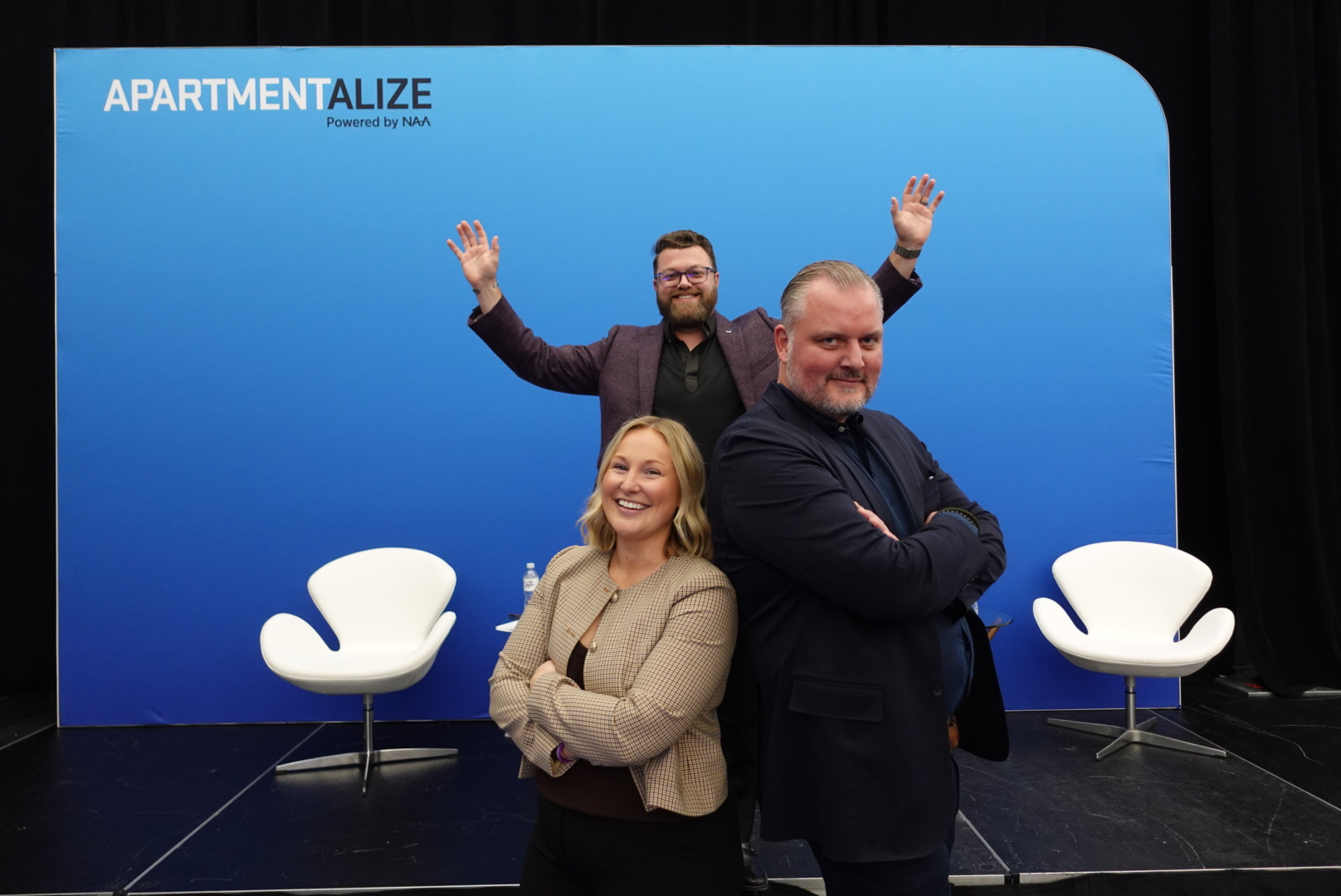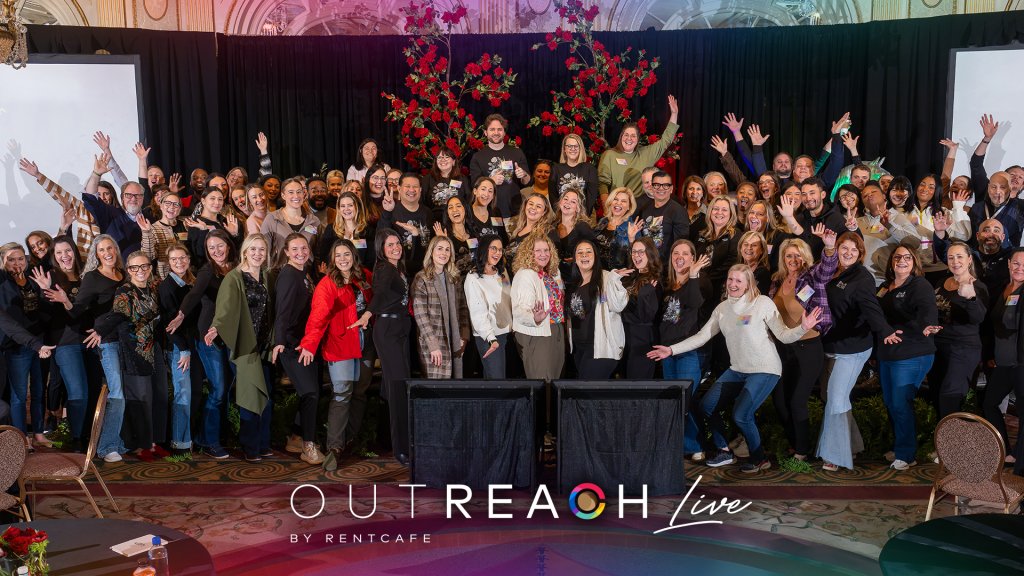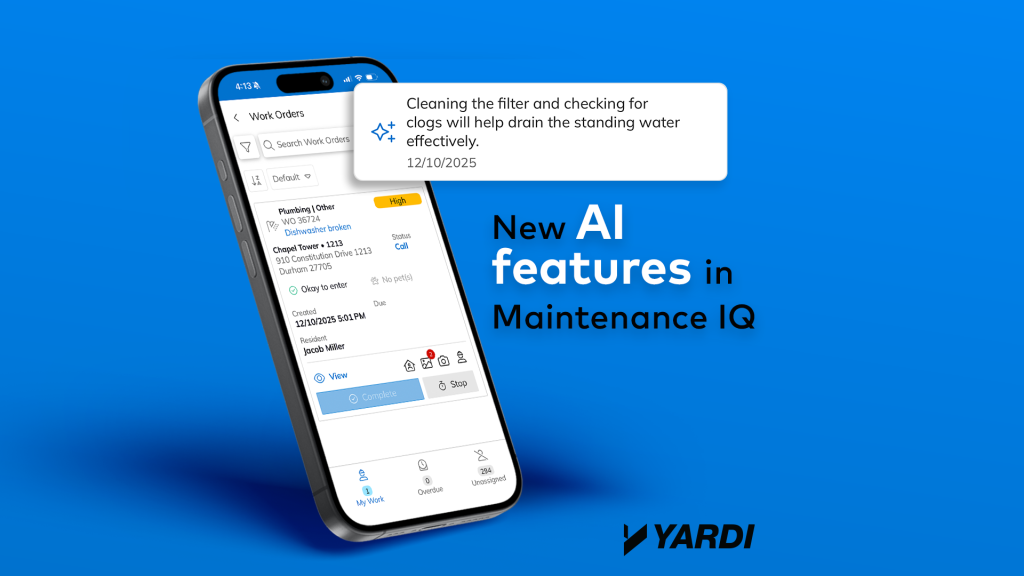By Vianna Mabanag on July 2, 2025 in Events

Hospitality isn’t just for hotel guests. At Apartmentalize 2025, industry leaders explored how multifamily housing operators are drawing inspiration from the hospitality sector to elevate renter experiences. Panelists Gustaf Burman (GID) and Josh Draughn (Weidner Apartment Homes) spoke with Taylor Blades (Yardi) to share valuable insights into operational innovation, renter expectations and the evolving role of technology in property management.
Read on for key themes and takeaways from the session.
1. Why hospitality is becoming a multifamily priority
Burman emphasized that multifamily lags 10 to 12 years behind hospitality in terms of tech adoption. GID is working to close that gap by building “service hubs” to drive both efficiency and customer understanding. Draughn noted that rising rents and growing competition have forced operators to prioritize resident satisfaction and deliver more with less.
2. Personalize experiences
Hospitality in multifamily isn’t about keycards or room service — it’s about unexpected, meaningful moments. Draughn shared the concept of “love notes,” or small acts of service that make residents feel genuinely cared for.
This could mean a staff member offering to take a resident’s pet to the groomer, shipping a package the resident wasn’t able to send or sending a card when someone has a baby.
These small gestures create a powerful connection that builds loyalty, sparks word-of-mouth advocacy and lowers marketing and operating expenses — because a community that champions itself is the best sales team you can have.
3. Technology empowers, not replaces
Both panelists stressed that technology should amplify human connection, not replace it. Draughn shared that before Weidner implemented a virtual leasing assistant and centralized call center, 50% of calls were missed and only half of the responses addressed prospects’ questions. After centralizing operations and embracing AI, missed calls dropped to 11%, giving staff more time to create high-touch resident interactions.
GID is following a similar path to centralize operations and ensure that key human interactions remain thoughtful and personalized. Both companies are leveraging tech not just to streamline processes but to free up staff for meaningful moments.
4. The first 60 days matter
Draughn pointed to research showing that a resident with a positive experience in the first 30 days is 90% more likely to renew. That’s why Weidner focuses on proactive communication and technology support during move-in. From AI-generated move-in instructions to digital concierge services, every touchpoint is designed to reduce stress and build connection from day one.
5. Centralization without compromising service
Instead of reducing staff, Weidner turned to restructuring roles, creating specialized remote teams to handle leasing tasks without interruption. This shift allows onsite staff to focus fully on resident interaction. Both panelists stressed the importance of training and empowering staff, especially Gen Z employees who thrive on purpose-driven roles.
6. Build loyalty through lifestyle
Modern renters want more than amenities. They want a sense of community, culture and connection. Burman highlighted that creating brand loyalty means focusing on lifestyle experiences that go beyond luxury. Draughn suggested that when residents feel connected, they become co-creators of the community, reducing marketing costs while increasing retention.
7. Rewards, essentials & scalability
Both companies agreed that simplicity and scalability are key when it comes to renter rewards programs. One-stop-shop platforms for move-in essentials like insurance and utilities were seen as powerful tools for enhancing convenience.
Advice for smaller operators
For operators with limited resources, Burman and Draughn emphasized two things:
- Partner wisely. Choose vendors with strong support and tech platforms.
- Focus intentionally. Identify your top three operational pain points and solve those first before expanding efforts.
Ready to elevate your resident experience?
We hope these lessons on hospitality in multifamily housing were helpful.
Talk to our team to see how Yardi’s connected solutions can help you centralize operations, personalize service and scale with efficiency.


